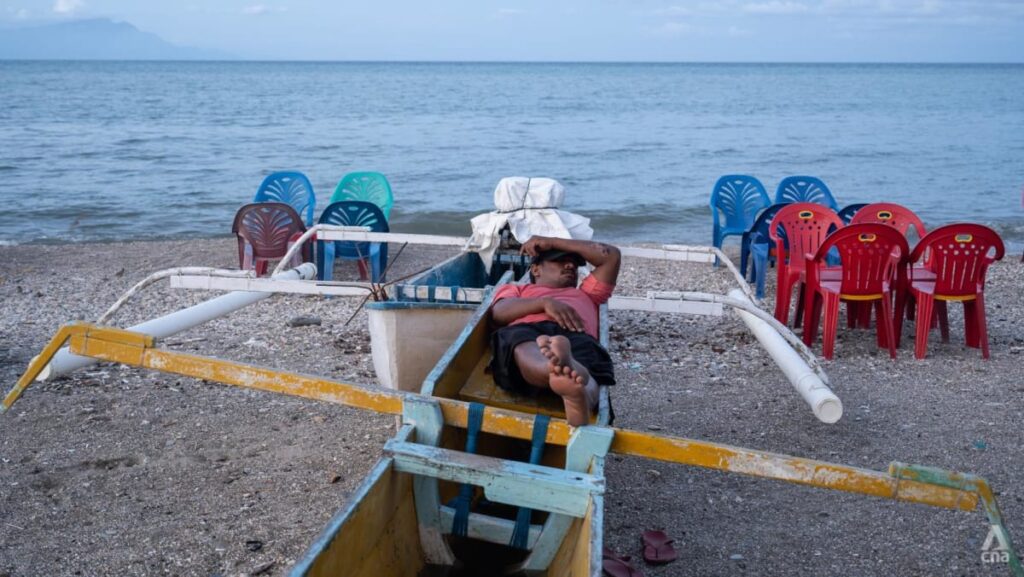Locals were initially happy with the presence of Chinese businesses as they imported and sold everyday items like shoes and stationery at lower prices than before, she said.
But over time, the local community grew worried about the “massive” impact on both large and small businesses.
“It is difficult to compete with them. Even many shops from Indonesia and other countries are slowly beginning to disappear one by one.”
Gulo revealed that she and her husband could earn tens of thousands of US dollars per month before they had a direct competitor next door.
Since then, their income has been reduced by 50 per cent.
Toni Khuan, the manager of the grocery store next door, told CNA why its items were cheap.
“Our products are from China. So when it comes to the price, the locals cannot compete,” said Khuan, an Indonesian who moved from West Kalimantan to work in Dili.
According to Chinese entrepreneur Wang Jia Sheng, the Chinese government gives incentives such as rental subsidies and tax exemptions to companies operating abroad, which enabled her to set up a burger restaurant in Dili about a year ago. She decided to seek her fortune in Timor-Leste after hearing about untapped business opportunities there from a friend.
Back home, competition is fierce and even though Timor-Leste is less modern than China, Wang is happy to call it her second home.
“Timor-Leste is a beautiful country. I like the country,” said Wang, who is vice-president of the Association of Chinese Youth Entrepreneurs in Timor-Leste, which has 300 members.
“I think the locals love my food (her burgers),” she said with a laugh.
The rise of Chinese merchants in the country is worrying, admitted Timor-Leste Prime Minister Xanana Gusmao when CNA met him late last year.
“It is a problem. The problem is we have to push to improve the culture of (doing) business,” Gusmao told CNA a day after he met the vice-chairperson of the national committee of the Chinese People’s Political Consultative Conference at his office in Dili.
“Because the problem is, also, we are importing everything. And in the economic field, we have to change this. We have to start producing,” he said.
Gusmao said the government is thinking of creating a development bank to help micro and small enterprises so that its people can engage in production and not be dependent on imports.

